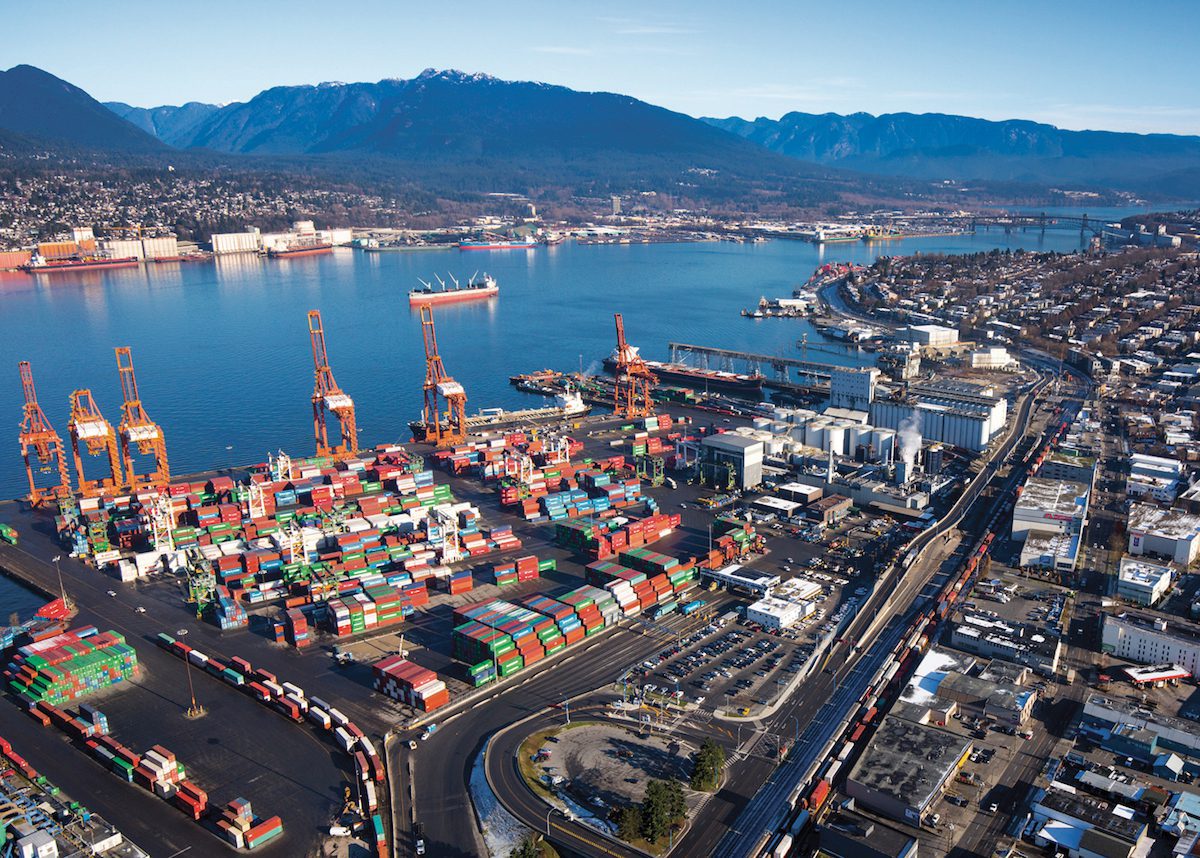Maersk Contests Transnet’s Pick for South African Port Partner
By Paul Burkhardt (Bloomberg) — A.P. Moller – Maersk A/S is contesting a process held by South Africa’s state logistics firm Transnet SOC Ltd. to find a partner to develop sub-Saharan...


Cargo operations at Port Metro Vancouver. Photo courtesy Port Metro Vancouver
by Natalie Obiko Pearson (Bloomberg) Traffic through Canada’s biggest port fell during the first half of the year, hit by weak industrial activity at home and slackening demand for commodities in Asia, another sign of trouble for the nation’s sputtering economy.
Following a record year for the Port of Vancouver in 2015, cargo fell 5.9 percent to 66 million metric tons in the six months to June from the same period in 2015, the port said in a statement. Shipments of all major commodities declined except for grains.


Exports of thermal coal for power plants in Asia plummeted 39 percent. Meanwhile, a slowdown in industrial activity in western Canada hit volumes of machinery, vehicles, and construction materials, which fell 12 percent. A weaker Canadian dollar also affected consumers, leading to a decline in imports of household goods, it said.
Canada’s natural resources-dependent economy is struggling to emerge from a slump having expanded by 1.2 percent since May 2014, the slowest two-year pace outside a recession in at least six decades. Disappointing data on trade and employment has stoked speculation policy makers will need to add even more stimulus if things don’t improve
©2016 Bloomberg News
Join the gCaptain Club for curated content, insider opinions, and vibrant community discussions.


Join the 105,844 members that receive our newsletter.
Have a news tip? Let us know.
Access exclusive insights, engage in vibrant discussions, and gain perspectives from our CEO.
Sign Up




Maritime and offshore news trusted by our 105,844 members delivered daily straight to your inbox.



Essential news coupled with the finest maritime content sourced from across the globe.
Sign Up